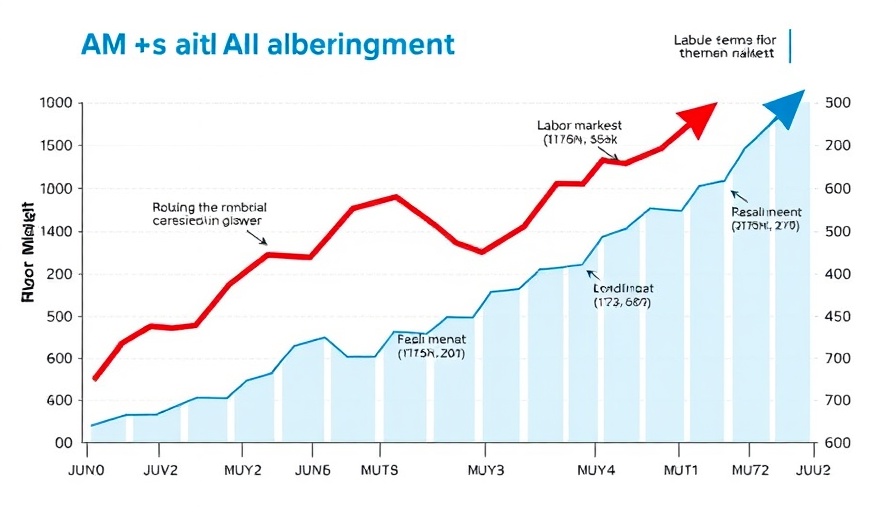
Understanding AI's Impact on Job Demand
The rise of artificial intelligence (AI) is reshaping the landscape of employment across various sectors. As AI technologies advance, the labor market is experiencing what can be termed \"labor demand shocks,\" where certain job roles become increasingly obsolete while others emerge. For entrepreneurs, small business owners, and skilled trades workers, it is crucial to grasp these changes to remain competitive.
The Challenge for Blue and White Collar Workers
AI's integration into workplaces presents both challenges and opportunities. For white-collar positions, tasks such as data analysis and routine reporting can be automated, thus creating a demand for fewer human laborers in these fields. Conversely, the trades and skilled labor sectors may see an uptick in demand as new technologies create jobs that require human oversight and creativity. Recognizing this shift is vital for job seekers and skilled workers looking to pivot their career paths.
Strategies for Adaptation
To navigate the disruptions caused by AI, workers need to adapt proactively. This can include upskilling through online courses or reskilling for roles that incorporate AI tools. Small businesses can enhance their competitive edge by investing in training programs for employees, ensuring staff remain valuable assets as the market evolves.
Looking Ahead: Future Workforce Trends
Analysts predict that the most resilient workers will be those who embrace continuous learning and adaptability. The increasing prevalence of AI forecasts a future where collaboration between humans and machines will be the norm, rather than the exception. Understanding these trends allows businesses to not only prepare but thrive in the emerging job market.
Take Action Today
As we stand on the brink of a new employment era defined by AI, it is paramount for innovators, entrepreneurs, and the workforce to stay informed and engaged. The path towards embracing AI starts with you – begin exploring educational resources today to equip yourself for tomorrow's job demands.
 Add Row
Add Row  Add
Add 




Write A Comment